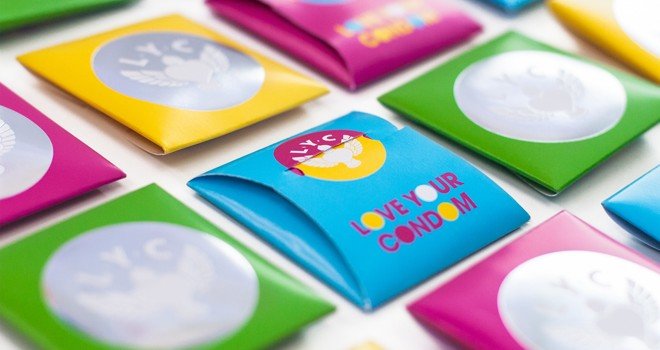
But that was fairly shortlived because and it has lost the Love Your Condom (LYC) brand, a government-funded prevention campaign encouraging condom use among all gay and bisexual men, the most at risk demographic for contracting HIV, to bcg2.
The initial strategic pitch involved four agencies, with two making it into the final presentation.
“The passion and enthusiasm of the team at bcg2 for our cause was clearly evident throughout the RFP process,” says Joe Rich, communications and marketing manager for the New Zealand AIDS Foundation. “The decision to change agencies was not taken lightly, and we wanted to know that whoever we worked with really understood our audience, was willing to work collaboratively and had the capability to build on our current success. We’re looking forward to continuing our success with bcg2.”
Rich didn’t want to talk about the other agencies involved, or why the account was put up for pitch given what appears to have been a successful campaign. But James Blackwood, bcg2 chief executive and executive creative director, says Sydney-based expat Kiwi Photographer David Shields is working with the agency on the new creative direction.
“We see the new work as a natural step from where LYC has been and are keen to challenge boundaries to make the brand more appealing and relevant to all parts of its audience.”
The media account for LYC was not part of this pitch and remains with Mediacom New Zealand.
Previous prevention efforts meant New Zealand had a low rate of HIV infection compared to other countries, but gay and bisexual men under the age of 30 were displaying a declining rate of condom use and highly sexualised men (those reporting 20 or more sexual partners in a six-month period) were most likely not to use condoms for anal sex and were least likely to have had a recent HIV test. So the NZ AIDS Foundation and Interbrand focused on a strategy with a positive message that would promote a ‘condom culture’ and developed a brand platform that educated young men about always using protection.
“Initially the job for the LYC brand and campaigns was to re-engage and raise awareness with its audience: gay and bi-sexual men,” says Interbrand NZ’s general manager Karen Jones. “Over the last three years it has transitioned to driving change in behaviour, largely through social media channels.”
Government departments and agencies are increasingly steering clear of talking about risks and leveraging fear in their communications, as evidenced by some of the recent road safety, alcohol reduction and water safety campaigns. Campaign coordinators knew the target audience had unfavorable responses to the fearmongering approach seen in the past. So Jones says the central theme was that sex is amazing, and it should be celebrated in a playful and positive way, rather than being lumped in with sickness and death.
{% gallery ‘lyc’ %}
“It’s about making men love themselves first and then enjoying sex.”
The campaign employed outdoor media, event activations, social media engagement (people were able to submit photos and be the face of the campaign) and online videos on topics like ‘how to put on a condom‘ and ‘how to have anal sex‘ (which has been viewed more than two million times). And Jones says the “urban and pro sex” ?LYC brand—and its verbal identity—has evolved so it has the flexibility to adjust its message to its environment and channel.
“Talking about condoms in a public arena has to be managed differently to how you talk about it in a more ‘intimate’ environment.”
The campaign has been a success. Since 2010 HIV diagnoses among gay and bi-sexual men have decreased by eight percent, while 73 percent of men reported using a condom with casual sex partners, which represents a 13 percent increase on the data from 2011. And a study conducted by Massey University showed that the odds of gay and bi-sexual men using a condom increased by five percent for each additional ‘Love your condom’ message or advertisement they had seen.
“HIV infection is a serious issue, so we are very proud that the LYC brand and the campaigns originated from this have contributed to a reduction in infection rates. It supports Interbrand’s belief that ‘Brands Have the Power to Change the World’—or at least the world we live in.”
This story first appeared in Stop Press.


